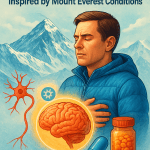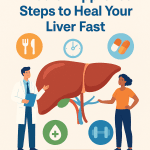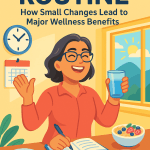This article is for informational purposes only and is not a substitute for professional medical advice.
What Are Sleep Disorders?
Sleep disorders are conditions that affect your ability to sleep well on a regular basis. They can lead to daytime fatigue, mood changes, and difficulty concentrating, impacting your overall health and quality of life. From insomnia to sleep apnea, understanding these disorders is crucial for effective management. Did you know that sleep disorders can affect up to 70 million Americans? (CDC) This statistic highlights the importance of recognizing and addressing these issues.
Common Types of Sleep Disorders
Several types of sleep disorders exist, each with unique symptoms and treatments. Here are some of the most common:
1. Insomnia
Insomnia is characterized by difficulty falling asleep, staying asleep, or waking up too early. It can be acute, lasting for a short period, or chronic, persisting for months. Stress, anxiety, and certain medications often contribute to insomnia. The pathophysiology of insomnia involves dysregulation of neurotransmitters, such as gamma-aminobutyric acid (GABA) and serotonin, which play critical roles in sleep regulation. Additionally, chronic insomnia can lead to changes in brain structure and function, particularly in areas associated with emotional regulation and cognitive processing (PubMed).
2. Sleep Apnea
Sleep apnea involves repeated interruptions in breathing during sleep. The most common type, obstructive sleep apnea (OSA), occurs when throat muscles relax excessively, blocking the airway. Symptoms include loud snoring and excessive daytime sleepiness. The mechanisms behind OSA include anatomical factors, such as obesity, which can lead to increased pressure on the airway, and neuromuscular control issues that fail to maintain airway patency during sleep. Interestingly, OSA is also linked to cardiovascular problems, as the repeated drops in oxygen levels can strain the heart (NHLBI).
3. Restless Legs Syndrome (RLS)
RLS causes uncomfortable sensations in the legs, leading to an irresistible urge to move them, especially at night. This can significantly disrupt sleep quality and lead to insomnia. The condition is thought to be associated with dopamine dysfunction in the brain, which is crucial for movement control. RLS can also have a genetic component, with certain variants increasing susceptibility. It’s important to note that RLS can co-occur with other conditions, such as iron deficiency anemia, which may exacerbate symptoms (PubMed).
4. Narcolepsy
Narcolepsy is a neurological disorder that affects the brain’s ability to regulate sleep-wake cycles. It can cause excessive daytime sleepiness and sudden sleep attacks, often at inappropriate times. The underlying mechanisms involve a deficiency of hypocretin, a neurotransmitter that helps regulate arousal and wakefulness. Narcolepsy can also be associated with cataplexy, a sudden loss of muscle tone triggered by strong emotions. Diagnosis often requires a sleep study to confirm the presence of these symptoms and rule out other conditions (CDC).
Symptoms of Sleep Disorders
Identifying the symptoms of sleep disorders is the first step toward seeking help. Common symptoms include:
- Difficulty falling or staying asleep
- Daytime fatigue or sleepiness
- Irritability or mood swings
- Difficulty concentrating
- Frequent waking during the night
Diagnosis of Sleep Disorders
Diagnosing a sleep disorder typically involves a thorough evaluation by a healthcare provider. This may include:
- A detailed sleep history and questionnaire
- Physical examination
- Sleep studies, such as polysomnography, to monitor sleep patterns
- Home sleep apnea testing for suspected sleep apnea
It’s important to note that self-diagnosis can be misleading. A healthcare provider can help differentiate between various sleep disorders and recommend appropriate tests. In some cases, a sleep diary may be useful for tracking patterns over time and identifying triggers or contributing factors.
Treatment Options for Sleep Disorders
Effective treatment for sleep disorders varies based on the type and severity of the condition. Here are some common approaches:
Cognitive Behavioral Therapy for Insomnia (CBT-I)
CBT-I is a structured program that helps individuals identify and replace thoughts and behaviors that cause or worsen sleep problems. Research shows it can be more effective than medication for chronic insomnia (PubMed). The therapy typically includes sleep education, cognitive restructuring, and sleep restriction techniques, which can help re-establish a healthy sleep pattern. One practical tip is to keep a consistent sleep schedule, even on weekends, to reinforce your body’s natural circadian rhythms.
Medications
In some cases, medications may be prescribed to help manage symptoms. For insomnia, options include:
- Prescription sleep aids (e.g., zolpidem, eszopiclone)
- Over-the-counter options (e.g., diphenhydramine)
For sleep apnea, CPAP (Continuous Positive Airway Pressure) machines are commonly used to keep the airway open during sleep. However, it’s essential to use these devices consistently for maximum benefit. It’s also worth exploring alternative treatments, such as positional therapy or oral appliances, which can be effective for some individuals.
Lifestyle Changes
Implementing healthy sleep habits can significantly improve sleep quality. Consider these tips:
- Establish a regular sleep schedule by going to bed and waking up at the same time every day.
- Create a relaxing bedtime routine to signal your body that it’s time to wind down.
- Avoid caffeine and heavy meals close to bedtime.
- Limit screen time before sleep to reduce blue light exposure.
- Engage in regular physical activity, which can promote better sleep quality.
Additionally, creating a comfortable sleep environment—cool, dark, and quiet—can enhance your ability to fall and stay asleep.
Natural Remedies
Some individuals find relief through natural remedies, including:
- Melatonin supplements, which can help regulate sleep-wake cycles.
- Herbal teas like chamomile or valerian root.
- Mindfulness and relaxation techniques, such as yoga or meditation.
While natural remedies can be beneficial, it’s vital to consult with a healthcare provider before starting any new supplement or treatment. Some herbal supplements can interact with medications or have side effects that may not be immediately apparent.
Patient Vignette
Meet Sarah, a 34-year-old teacher who struggled with insomnia for years. Despite trying over-the-counter sleep aids, she found little relief. After consulting with her doctor, she was referred to a sleep specialist who recommended CBT-I. Within weeks, Sarah learned effective techniques to manage her thoughts and behaviors around sleep. Now, she enjoys restful nights and feels more energetic during the day. Her story illustrates the importance of seeking professional help and finding the right treatment for sleep disorders.
Myth vs. Fact
| Myth | Fact |
|---|---|
| Sleep disorders only affect older adults. | Sleep disorders can affect individuals of all ages, including children and young adults. |
| All sleep medications are addictive. | While some sleep medications can lead to dependence, many are safe for short-term use under a doctor’s guidance. |
| You can “catch up” on sleep during the weekends. | While extra sleep can help, it doesn’t fully compensate for chronic sleep deprivation. |
| Snoring is harmless. | Snoring can be a sign of sleep apnea, which may require medical attention. |
| Drinking alcohol helps you sleep better. | Alcohol can disrupt sleep patterns and lead to poorer sleep quality. |
Frequently Asked Questions
1. What are the signs that I might have a sleep disorder?
Signs include persistent difficulty sleeping, daytime fatigue, irritability, and concentration issues.
2. How can I improve my sleep hygiene?
Improve your sleep hygiene by maintaining a consistent sleep schedule, creating a calming bedtime routine, and limiting screen time before bed.
3. Are sleep disorders hereditary?
Some sleep disorders, like narcolepsy, have a genetic component, but environmental factors also play a significant role.
4. Can children have sleep disorders?
Yes, children can experience sleep disorders such as insomnia, sleep apnea, and night terrors.
5. What should I do if I suspect I have a sleep disorder?
If you suspect a sleep disorder, consult a healthcare provider for an evaluation and appropriate treatment options.
Key Takeaways
- Sleep disorders can significantly impact your health and daily life.
- Common disorders include insomnia, sleep apnea, RLS, and narcolepsy.
- Effective treatments range from behavioral therapies to medications and lifestyle changes.
- Improving sleep hygiene can enhance sleep quality for many individuals.
- Consulting a healthcare provider is essential for proper diagnosis and treatment.
References
- National Heart, Lung, and Blood Institute (NHLBI) – Sleep Apnea
- American Academy of Sleep Medicine – Insomnia
- PubMed – Cognitive Behavioral Therapy for Insomnia
- World Health Organization – Sleep Disorders
- Centers for Disease Control and Prevention – Sleep and Sleep Disorders
- NHS – Sleep Disorders
- UpToDate – Overview of Sleep Disorders








Post a comment